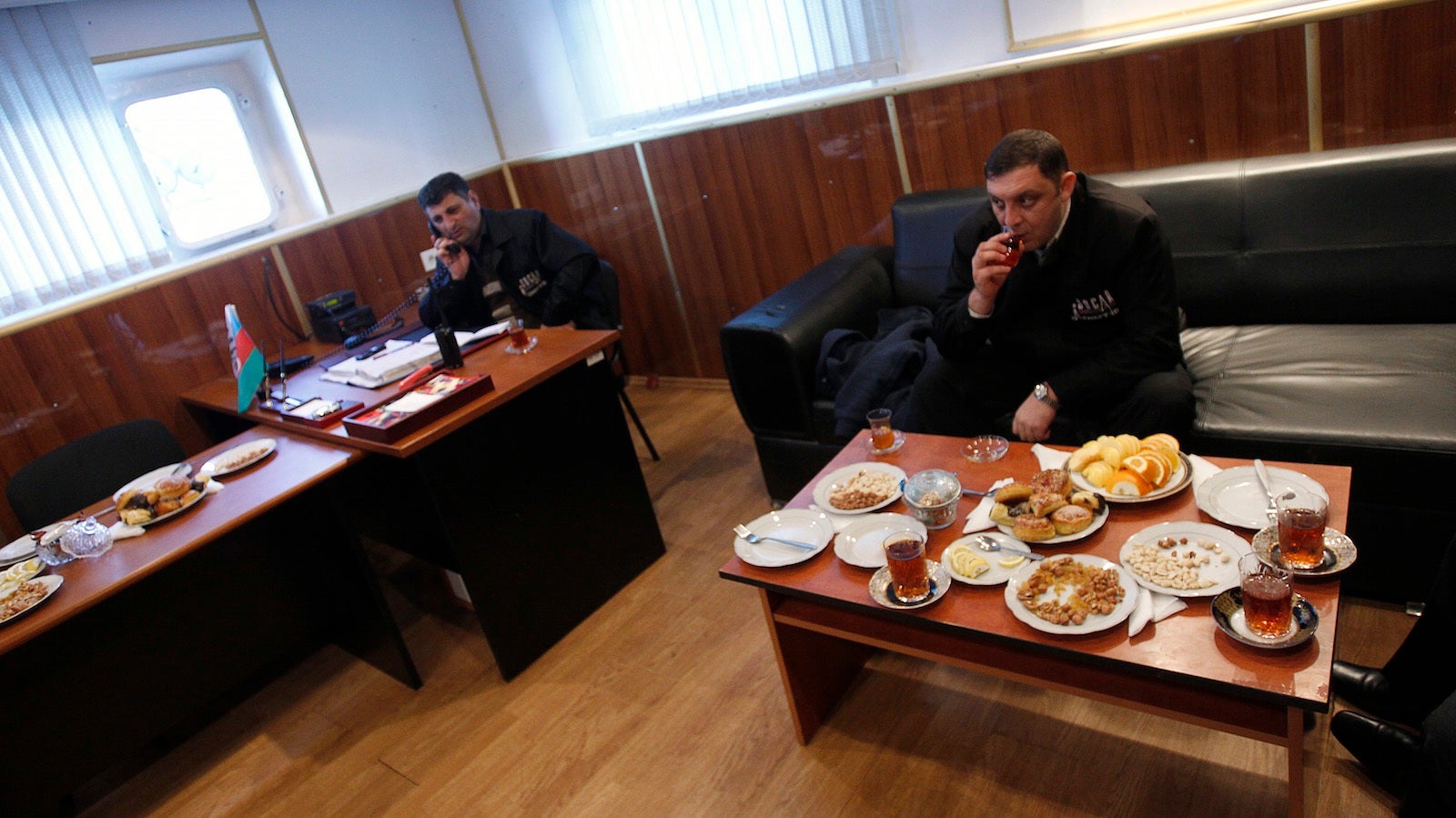Azerbaijan’s government is trying to patent breakfast
Known for its penchant for curbing civil liberties, the government of Azerbaijan is now moving to limit gastronomic freedom as well. To popularize the Caspian Sea country’s national cuisine, tourism officials have decided to make a traditional breakfast mandatory for all of the country’s hotels to serve. But first, they decided to “patent” an Azerbaijani breakfast.


Known for its penchant for curbing civil liberties, the government of Azerbaijan is now moving to limit gastronomic freedom as well. To popularize the Caspian Sea country’s national cuisine, tourism officials have decided to make a traditional breakfast mandatory for all of the country’s hotels to serve. But first, they decided to “patent” an Azerbaijani breakfast.
The prospect of thousands of hungry athletes and spectators descending on Azerbaijan’s capital, Baku, this summer for the June 12-28 European Games no doubt prompted the decision. The former Soviet republic is hosting and financing the event, a Europe-only Olympics, to promote itself—and its culture—internationally.
Cuisine, of course, is part of that mission, and breakfast, after all, is the most important meal of the day.
But what exactly goes into a trademarked “Azerbaijan Breakfast?”
Despite its enthusiasm for the idea, the ministry of culture and tourism, as yet, has not gotten around to elaborating. Nor has the state patent office.
It might be difficult to make the claim that an Azerbaijani breakfast is so unusual as to be patent-worthy, however. Generally, the meal can include sheep-cheese, honey, yogurt, a variety of fruit, scrambled eggs with tomato, bread, and tea, tea, tea—a combination not too dissimilar from other places in the region.
So why patent breakfast, in particular? Minister of culture and tourism Abulfas Garayev explained earlier this month that the decision was made to patent Azerbaijan’s breakfast since tourists allegedly prefer to leave the hotel for other meals.
To get guests hooked, several hotels—as yet unnamed—will serve only the “Azerbaijan breakfast” for breakfast when the European Games kick off, Azerbaijani media reported Garayev as saying.
“Later on, it [the Azerbaijani breakfast] will become compulsory in all hotels of the country,” he added.
Hotel guests are likely to discover that they face not only limeakfast ited breakfast options. The TV sets in hotel rooms already display local news designed to promote only the government’s point of view. Many local reporters have left the country, censor themselves, or are locked away in prison—like jailed investigative journalist Khadija Ismayilova, who was just named a recipient of the Pen American Center’s Freedom to Write Award.
Outside of the media, few are inclined to voice government-criticism loudly, either. Most recently, a leading rights defender and government sceptic Rasul Jafarov was sentenced to seven years in jail on charges ranging from tax evasion to embezzlement.
As they have for scores of other activists, journalists, and lawyers now doing time in Azerbaijan’s prisons, international human rights organizations have described the convictions as politically motivated.
Apparently, the government does not believe this will impede the flow of visitors for the European Games, or customers for an “Azerbaijan breakfast.”
The good news for guests to Azerbaijan with now limited breakfast—as well as news—options is that Azerbaijani food is truly delicious. Government propaganda, though, may be an acquired taste.